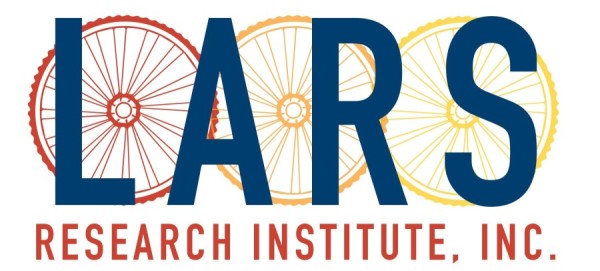 Lawrence M. Scheier Ph.D., President
Lawrence M. Scheier Ph.D., President
Email: Scheier@larsri.org
![lms @ St[1]. Moritz climb](https://www.larsri.org/wp-content/uploads/2016/04/lms-@-St1.-Moritz-climb-150x150.jpg)
EDUCATION
Lawrence M. Scheier, Ph..D. received his Bachelor of Arts degree (Psychology) from Duke University in 1978. While attending Duke, Dr. Scheier worked at the Duke Regional Primate Center conducting studies of neurophysiology and behavior. During his junior year at Duke, Dr. Scheier spent a year abroad working on a Kibbutz in Israel and studying archaeology and Judaic studies. Dr. Scheier then attended New York University, where he received his Masters Degree (General Psychology) in 1983. During this time, he worked at the Rockland Research Institute in Orangeburg, New York conducting studies of electrophysiology, neuropsychopharmacology, and behavior. Dr. Scheier received his Ph.D. (Educational Psychology) from the University of Southern California in 1988, and received an Educare scholarship for outstanding academic achievement from the Graduate School of Education. During his graduate training, Dr. Scheier worked at the Institute for Health Promotion and Disease Prevention, USC School of Pharmacy where he began his formal studies of drug etiology and prevention. Following completion of his doctoral degree, Dr. Scheier completed a National Institute on Alcoholism and Alcohol Abuse Postdoctoral Fellowship at the Alcohol Research Group, University of California, Berkeley, and also completed a National Institute of Mental Health Postdoctoral Fellowship in developmental studies at the Polisher Research Institute, Philadelphia Geriatric Center, Medical College of Pennsylvania.

EMPLOYMENT EXPERIENCE
Over the years Dr. Scheier has worked with several noted luminaries in the field of drug etiology and prevention including Drs. Michael Newcomb and Peter Bentler at the UCLA Center for Adolescent Development and Drug Abuse Etiology, where he worked with a team of scientists developing and testing the EQS structural equation software program. Dr. Scheier has used his training and expertise to work with a variety of groups developing longitudinal models of health, drug etiology and drug consequences. In 1993 Dr. Scheier began working with Gilbert J. Botvin, author of the Life Skills Training program, a middle school drug abuse prevention program. Over the years, LST has become one of the mostly highly acclaimed and widely researched drug prevention programs, receiving numerous awards and recognition. The National Institute on Drug Abuse recognized LST in their Red Book as a “best practices” program and the Center for Disease Control and Prevention hailed LST as one of the 10 best “and most effective” violence prevention programs in their 1998 Blueprints for Violence Prevention. As an Associate Professor of Public Health (Voluntary) at the Weill Medical College of Cornell University, Dr. Scheier continues to work closely with his colleagues testing the efficacy of LST with applications to reduce drug use, violence, depression, anxiety, social aggression, and behavior problems. For the past ten years, the investigative group at Cornell received funding through a P50 Center grant from the National Institute on Drug Abuse to conduct research in program development and evaluation emphasizing drug prevention among minority youth (Multiethnic Drug Abuse Prevention Research Center). During this time, Dr. Scheier spearheaded the Methodology Core, where he provided oversight for data archival and data analysis procedures, supervised the development of junior scientists, and provided statistical support for program evaluations of LST. Dr. Scheier has collaboratively published a number of key studies indicating the strengths of LST as well as studies of the long-term consequences of drug use during adolescence and young adulthood. More recently, Dr. Scheier has worked closely with investigators at Cornell to fine tune questionnaire assessment procedures and develop new inroads for LST tackling public health concerns such as violence prevention. Dr. Scheier has amassed over 100 publications and book chapters examining adolescent development, drug etiology and prevention, including co-authored chapters with Dr. Botvin on violence prevention (Preventing drug abuse and violence, in D. K. Wilson et al., Health-promoting and health-compromising behaviors among minority adolescents, American Psychological Association, 1997), the gateway hypothesis (Preventing the onset and developmental progression of adolescent drug use: Implications for the gateway hypothesis, in D. B. Kandel, Stages and pathways of drug involvement: Examining the gateway hypothesis, Cambridge University Press, 2002), and competence (Influence of competence and alcohol use on self-esteem, in T. M. Brinthaupt & R. P. Lipka, Understanding early adolescent self and identity: Applications and interventions, State University of New York Press, 2002).

RESEARCH FUNDING
Since receiving his Ph.D. in 1988, Dr. Scheier has been a Principal Investigator on a NIDA First Independent Research Support and Transition Award (Vulnerability to adolescent drug use and deviance: R29-DA8909), a supplemental Center grant (Expectancies as predictors of adolescent drug use: P50 (DA07656-04S1), and a program project (Self-efficacy, expectancies, and adolescent drug use) as part of the Multi-ethnic Drug Abuse Prevention Research Center. Most recently, Dr. Scheier received funding from NIDA (R01 DA 15337-01 Dynamic models of adolescent drug use prevention) to examine the “generative” mechanisms that connect intervention strategies to reductions in drug use and specifically isolate the “active ingredients” of a competence-based drug prevention program. In 2004, Dr. Scheier received a three-year grant from the National Institute on Drug Abuse to examine cognitive motivational factors in the etiology of drug use among ethnic minority youth. This research is part of a long-term effort by Dr. Scheier to tease apart cultural, personal, and racial factors contributing to early-stage drug use. In this study, Dr. Scheier uses cognitive tasks to elicit statements from adolescents regarding their perceived role as students, family members, peers, and members of an ethnic group. This information is then used to predict involvement in health behaviors (i.e., drug use) and other forms of delinquency. In addition to his work on drug etiology, Dr. Scheier has been involved in studies of drug consequences among high-risk populations including the longest study of drug consequences among inner-city black adults (Effects of drug abuse on young black adult functioning: R01 DA 12882-02). Working with a research team at the Belmont Center for Comprehensive Treatment at the Albert Einstein School of Medicine, Dr. Scheier developed the statistical methodology for testing various consequence models as well as research protocols for tracking participants over a ten-year period. Subjects in this study were drawn from the National Collaborative Perinatal Project, a long-term study of morbidity and health outcomes among inner-city African-American women. Dr. Scheier is well versed in prevention science and methodology and has a particular calling card demonstrating the uses of causal modeling techniques, growth curve analysis, and multivariate statistical methods (random coefficient models) for application in longitudinal developmental studies.
PROFESSIONAL DEVELOPMENT
Dr. Scheier is currently a member of the editorial board of four prominent drug studies journals including the Journal of Alcohol and Drug Education, Journal of Drug Education, Journal of Studies on Alcohol, and Journal of Child and Adolescent Substance Abuse. In addition to these assignments, Dr. Scheier provides ad hoc reviews for numerous top tier scientific journals including the Journal of Child Psychology and Psychiatry, Journal of Adolescent Research, Journal of Adolescence, Journal of Early Adolescence, Journal of Consulting and Clinical Psychology, Health Education and Behavior, Psychology of Addictive Behaviors, Drug and Alcohol Dependency, Addictive Behavior, and he has served as Action Editor for Prevention Science, the leading prevention journal sponsored by the Society for Prevention Research. On a regular basis, Dr. Scheier also provides consulting services to the Federal government including expert review services for grants. In the past, he has participated as a reviewer for several branches of the National Institutes on Health including NIAAA, NIMH, and NIDA and most recently was a member of a NIH special emphasis panel emphasizing prevention methodology (Social Sciences, Nursing, Epidemiology, and Methods Integrated Review Group [SNEM-1]). Currently, Dr. Scheier reviews for NIDA-K a standing committee that evaluates training fellowship, mentoring, and career research awards. As an expert in prevention science, Dr. Scheier is also called upon to review for various private organizations. In 2003, Dr. Scheier became a member of an elite group of scientists who provide reviews for the National Registry of Effective Prevention Programs, a collaborative project between the Center for Substance Abuse Prevention, National Center for the Advancement of Prevention, and Substance Abuse and Mental Health Services Administration. Reviews for NREPP provide Dr. Scheier the opportunity to evaluate state-of-the-art programs in mental health, HIV, drug use, and violence prevention with target populations across the lifespan. Dr. Scheier resides in Sun City, AZ with his border collie Descartes. He is the father of two young adult girls and remains active in sports, cycling and physical conditioning.
HOBBIES
Larry’s hobbies include riding bicycles.
